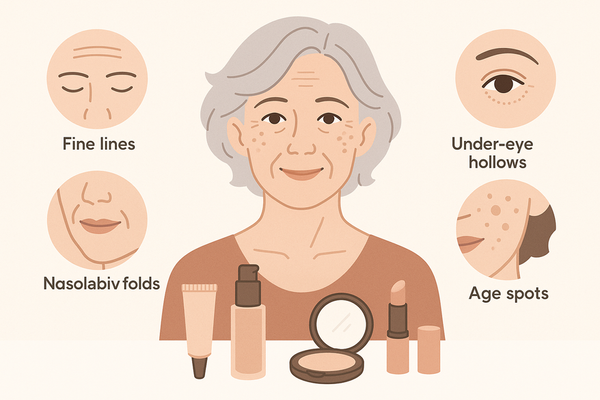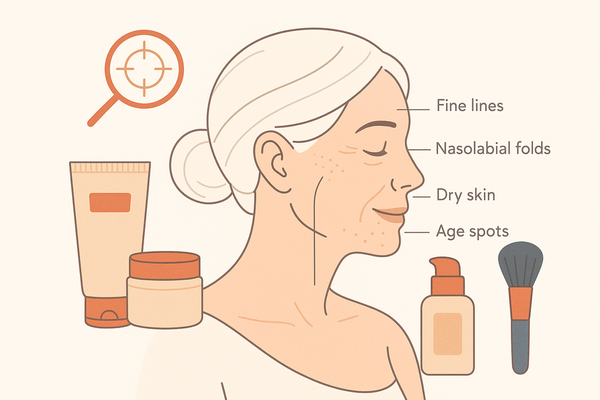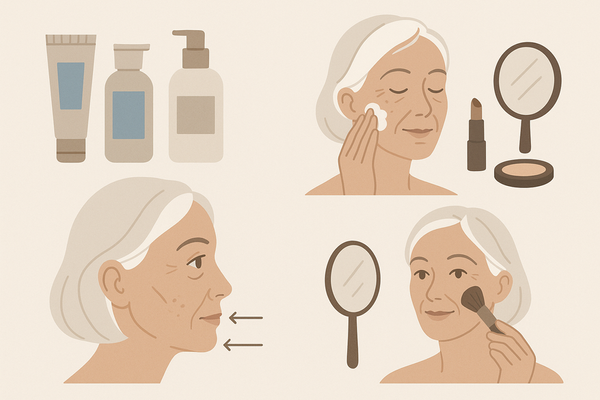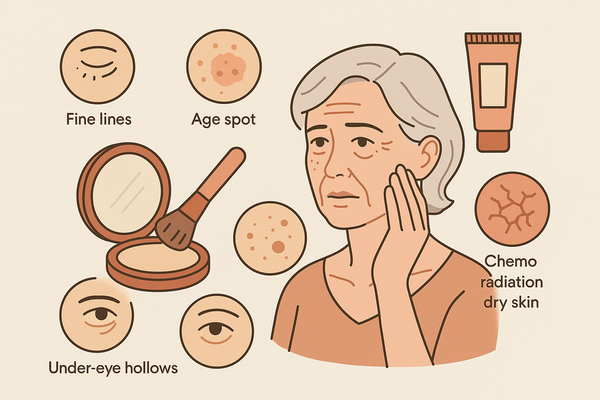Futuristic Cosmetic Formulations with AI: Transforming Beauty and Biotechnology
Explore how futuristic cosmetic formulations with AI are revolutionizing makeup through innovation, hyper-personalization, and sustainable biotechnology.
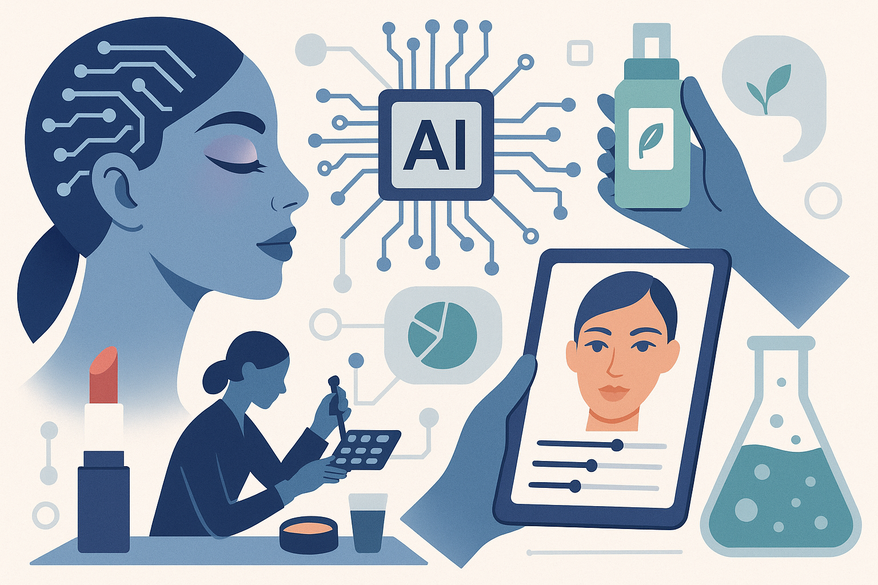
Estimated reading time: 8 minutes
Key Takeaways
- AI-driven R&D Acceleration: Machine learning and synthetic biology slash formulation timelines from years to months.
- Hyper-Personalization: Data-driven diagnostics enable bespoke serums, foundations, and treatments tailored to individual skin profiles.
- Sustainable Sourcing: Biosynthesized peptides and enzymes reduce reliance on petrochemicals and animal or plant harvesting.
- Biotechnology Integration: Lab-grown actives, bioprinted skin models, and neural networks expand ingredient discovery and safety testing.
- Future Frontiers: On-demand formulation devices, dynamic skin simulation, and AI skin scanners promise a new era of at-home beauty labs.
Table of Contents
- Introduction
- Defining Key Concepts
- The Intersection of Makeup and Biotechnology
- Innovations and Technological Advances
- Emerging Trends
- Impact on the Cosmetic Industry
- Consumer Benefits
- Challenges & Considerations
- Future Outlook
- Conclusion
Introduction
Futuristic cosmetic formulations with AI are reshaping our expectations of makeup and skin care. From speeding up ingredient discovery to enabling hyper-personalized routines, artificial intelligence is revolutionizing every stage of cosmetic R&D. In this post, we’ll define key concepts, explore how biotechnology meets beauty, highlight major tech advances, and peek into what’s next for the beauty industry.
Consumers today can also try tools like Makeup Check AI for AI-driven beauty analysis—covering formulation insights and personalized product matches.
Defining Key Concepts
Futuristic cosmetic formulations combine machine learning and synthetic biology to create data-driven, eco-friendly products with unmatched efficacy:
- Trend prediction: ML models analyze social media, consumer behavior, and sales data to forecast color palettes, textures, and packaging designs.
- Ingredient optimization: In silico testing assesses compatibility and stability before any lab work—see how AI redefines formulation discovery.
- Novel compound suggestion: Neural networks trained on chemical and biological datasets propose new molecules, from moisturizers to UV blockers.
- Biosynthesized actives: Genomics and synthetic biology produce peptides, enzymes, and other ingredients in bioreactors instead of relying on traditional farming.
The Intersection of Makeup and Biotechnology
Biotechnology is remaking makeup with lab-grown ingredients and precision actives:
- Bioengineered peptides: Target inflammaging, boost collagen, and repair the barrier at the molecular level.
- Lab-grown skin models: Bioprinted tissues enable safe, animal-free testing and personalized product trials.
- AI-powered discovery platforms: Tools like Debut simulate biological activity in silico—slashing research cycles from seven years to months.
- Data-driven selection: AI evaluates clinical data, ingredient libraries, and consumer feedback to predict performance and allergenicity.
Read more about biotech-driven beauty in our feature on AI-powered biotech makeup innovations.
Innovations and Technological Advances
Advanced AI methods are powering new formulas and sustainable beauty:
- Machine learning forecasts: Predict formulation stability and skin compatibility using large-scale ingredient and clinical datasets.
- Deep pattern recognition: Neural networks link molecular structure to function, revealing novel surfactants, polymers, and bioactives.
- Debut’s BeautyORB: Introduces brightening and anti-aging actives in months rather than years, accelerating market launches.
- Nouryon’s BeautyCreations™: An AI-assisted design tool for skin and hair care, offering real-time feedback and data visualization.
- Personalized skincare apps: Platforms like Haut.AI use computer vision and dermatology insights to craft custom regimens from selfies.
Explore more on cutting-edge makeup technologies in our article about AI-driven product innovations.
Emerging Trends
- Hyper-personalization: Real-time skin diagnostics plus AI generate custom serums, foundations, and treatments.
- Sustainable formulations: Biotech-derived actives cut carbon footprints and reduce packaging waste.
Impact on the Cosmetic Industry
- R&D acceleration: AI-driven platforms shrink development cycles to months.
- Cost reduction: In silico tests and biosynthesis lower lab expenses and eliminate animal testing.
- Indie empowerment: Smaller brands can access AI tools, leveling the playing field against big players.
Consumer Benefits
- Precision compatibility: Algorithms predict irritation risks and adjust pH for sensitive skin.
- True customization: Micro-batch formulas cater to niche segments or individual needs.
- Green sourcing: Biosynthesized actives consume less land, water, and energy than traditional ingredients.
Challenges & Considerations
- Regulatory adaptation: Agencies must update rules for AI-generated and bioengineered ingredients.
- Ethical AI: Clear consent and robust security are vital when apps collect personal skin data.
- Long-term safety: Novel bioactives need extensive trials to rule out allergic or environmental risks.
Future Outlook
Predicted Advances
- On-demand formulation devices: Home printers mix custom serums and masks from daily skin scans.
- Expanded biotech pipelines: Yeast-grown peptides, microalgae pigments, and fermented enzymes broaden ingredient palettes.
- AI skin scanners: Smartphone attachments and smart mirrors will track hydration, sebum, and barrier health.
Research Frontiers
- Dynamic skin simulation: AI models mimic aging, repair, and microbiome interactions for virtual testing.
- High-throughput screening: Cloud platforms screen thousands of bioactives in hours.
- Regulatory sandboxes: Collaborative forums where brands, developers, and regulators shape safety standards.
Conclusion
AI is driving a paradigm shift in cosmetic formulations—creating products that are faster to market, greener, and more personalized. The synergy between makeup and biotechnology unlocks new realms of creativity, efficacy, and sustainability. As these technologies evolve, the beauty industry stands on the cusp of an unprecedented era shaped by data science, genomics, and the art of beauty.
FAQ
- What are AI-driven cosmetic formulations?
Products designed with machine learning and synthetic biology to optimize performance and personalization. - How does biotechnology enhance makeup?
By introducing lab-grown actives, bioprinted testing models, and data-driven ingredient discovery. - Are AI cosmetics safe?
They undergo in silico and in vitro testing, but long-term safety trials remain essential. - Can consumers access these technologies?
Yes, through apps like Makeup Check AI and personalized skincare platforms. - What’s next for beauty innovation?
On-demand formulation devices, dynamic AI skin diagnostics, and expanded biotech pipelines.

